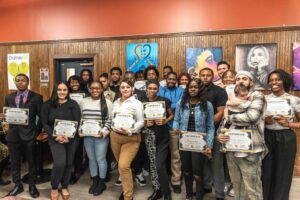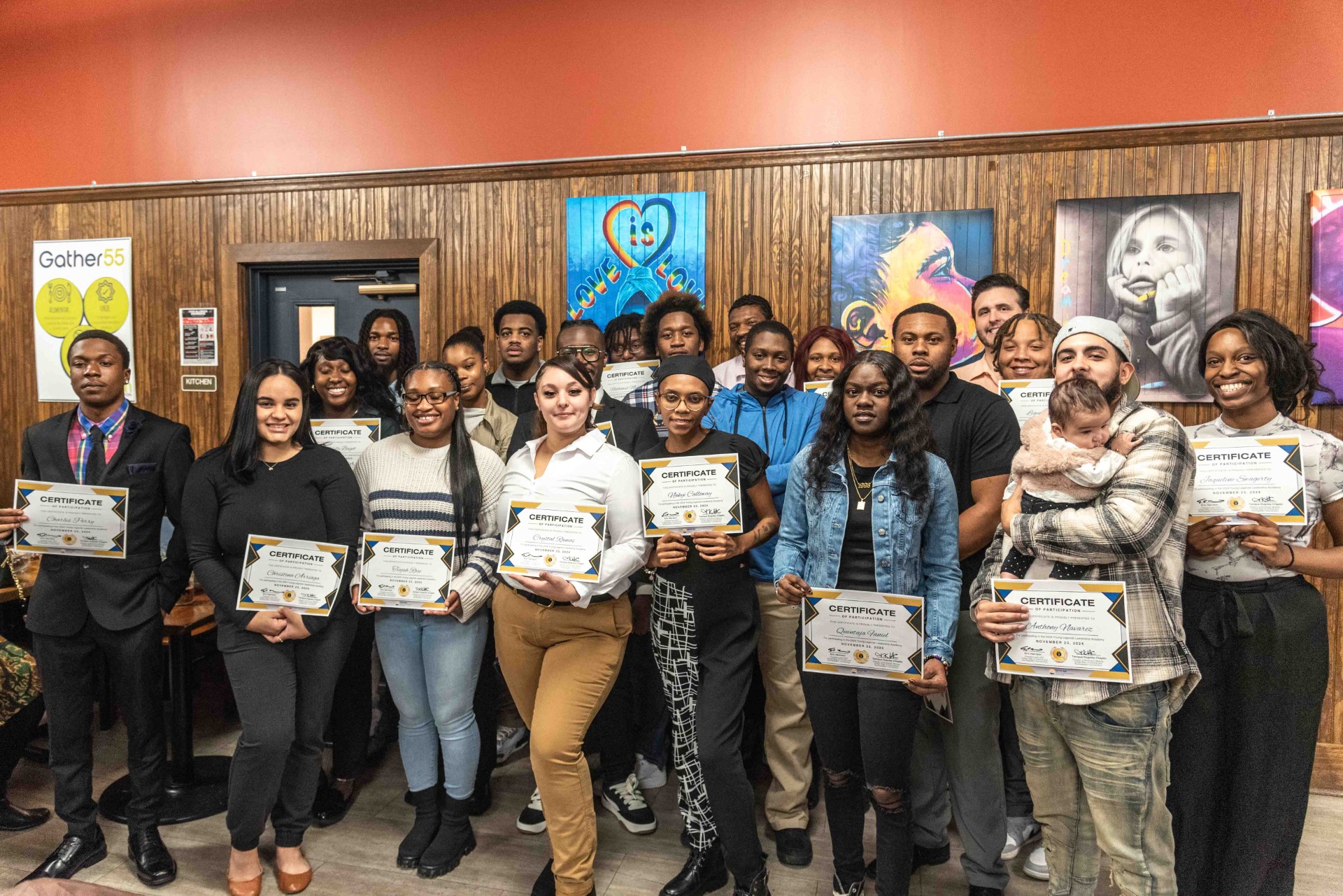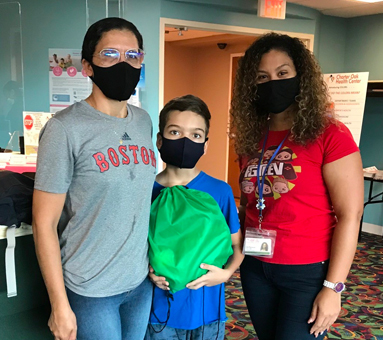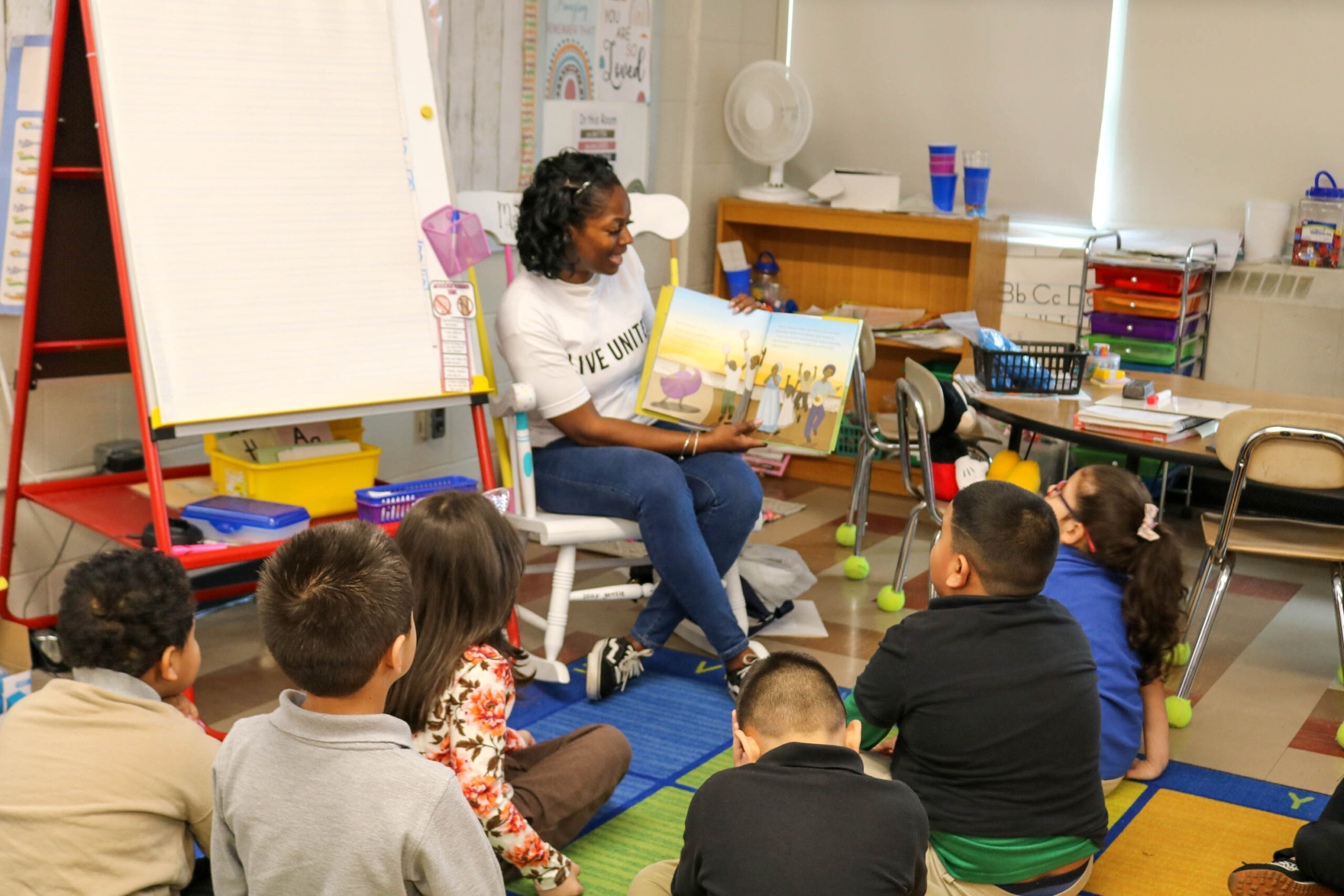 What issues impact Connecticut’s workforce? How can we close the gap between wages and the basic cost of living? And what solutions are available to help underemployed adults—and young adults—access meaningful careers with family-sustaining wages?
What issues impact Connecticut’s workforce? How can we close the gap between wages and the basic cost of living? And what solutions are available to help underemployed adults—and young adults—access meaningful careers with family-sustaining wages?
Combatting the Cost of Living
Individuals in Connecticut are significantly impacted by the mismatch between wages and the basic cost of living. Even with an increase in wages for the 20 most common occupations, the rate of inflation creates ongoing challenges.
While “all jobs are good jobs,” emphasizes Taniqua Huguley, Director of Economic Mobility at United Way of Central and Northeastern Connecticut, “the priority is to pay workers equitable wages so they can sustain their households—they’re not living from paycheck to paycheck or finding themselves in a situation where one emergency will offset whether or not they can pay for groceries or get to work.”
This is especially critical as the cost of living continues to increase. The ALICE Essentials Index from the 2023 Connecticut United Ways ALICE Report predicts a close to 20 percent increase statewide in basic costs from 2021 to 2023 (before taxes).
Low wages overall are another factor impacting Connecticut’s workforce. The 2023 Connecticut United Ways ALICE Report found that in 2021, 60 percent of the 20 most common occupations in Connecticut had hourly wages that paid below $20.
Generally increasing minimum wage will help address issues related to affordable housing, according to Taniqua. “Not just having affordable housing but having a quality housing with acceptable living conditions here in the city of Hartford,” she says.
Creating Career Opportunities
United Way of Northeastern and Central Connecticut is working to help people obtain jobs with career growth and family sustaining wages, and receive training to qualify for those jobs.
Many young adults (ages 16 to 29) are more apt to leave a job if they’re not happy. The goal is to help them learn about various career fields and find employment opportunities that best fit their skill and interest levels.
“There’s a lot of miseducation and undereducation about job and training opportunities. This age group is often unaware of compensation—such as funding or scholarship opportunities—for the training they may need for a particular job,” explains Taniqua.
Career navigation is essential. “We work in partnership with young people to learn about the barriers and experiences they’re encountering when trying to access the workforce,” she adds. “That has helped us really shape the direction we want to go in with our work.”
Some of the youth’s questions include:
- How long will it take to complete job training?
- Is training or some type of schooling even available?
- Are wraparound services, such as stipends at the end of a program or payment during training available?
In response to some of these questions, United Way of Central and Northeastern Connecticut has been going into the community and making people aware of the job opportunities and training programs that exist as well as job and training resources they may need to:
- access a particular job
- learn about the different career fields and jobs available
- ensure they’re prepared and ready to stay in a job
Then, United Way of Central and Northeastern Connecticut provides education and training in the community through Young Legends Leadership Academy and our Hartford Workforce Leaders Academy.
One of the United Way’s workgroups, our Young Legends Leadership Academy, provides training for up to 25 young people to receive career readiness skills including resume and interview preparation and financial literacy skills.
“We also put our young people in spaces that enable them to help us make decisions when it comes to the Hartford workforce,” says Taniqua. “They’re a part of our Hartford Opportunity Youth Collaborative, where we connect them with employers to help shape some of these decisions around hiring policies and practices.”
Meet our Young Legends. Tania and Khamari are committed to reducing barriers to young adult employment across Hartford.
United Way of Central and Northeastern Connecticut is committed to working with our partners through our community of practice and our Hartford Workforce Leaders Academy, equipping our career navigators with the tools they need to ensure that young people are successful. For example, providing them with professional development and training opportunities and keeping them updated about the workforce training changes and the labor market.
Another recently-implemented project is the United Way’s Navigation Hub, which provides career navigation resources specifically focusing on youth and young adults. Additionally, our Family Navigator program serves those who are currently pregnant and those with families, ensuring they’re connected to career navigation resources.
Encouraging Economic Mobility
Through its Financial Opportunity Centers, United Way of Central and Northeastern Connecticut funds and supports initiatives that help local adults and families achieve financial stability by offering career coaching and financial services, including financial and budget coaching.
“The goal is to help adults think about how to be financially fit and save for the future, so they can experience economic mobility,” explains Taniqua.
United Way of Central and Northeastern Connecticut partners annually with The Village and HRA to provide free tax services to residents across the 860 region. Families accessing our Volunteer Income Tax Assistance (VITA) services are saving hundreds of dollars by having their taxes prepared and filed by IRS-certified volunteers, and get their refunds quickly.
“The folks who access our VITA services often use their refunds back in the community to serve their family or to fund family expenses,” notes Taniqua. “For example, we’ve seen where refunds have enabled families purchase a car, so they can access work.”
Rethinking Post-Pandemic
Job availability in Greater Hartford was substantially affected by the COVID-19 pandemic. Yet, the DataHaven 2023 Greater Hartford Community Wellbeing Index reports that our state’s unemployment rate has remained low and a large wage gap still exists by sex and race/ethnicity, even within occupational groups.
The backlash from COVID-19 has led to a lack of social and professional development. And, despite pandemic-induced labor force shifts, continual gender and racial wage gaps persist (especially those based on race), indicating regional discrimination in education and jobs, shares the authors of “Meta-Analysis of Field Experiments Shows No Change in Racial Discrimination in Hiring over Time,” from the Proceedings of the National Academy of Sciences, 2017.
United Way’s Taniqua points out that there are also issues with employers still not “keeping up with times” as far as cultural competency and failure to recognize the impact mental health has on employees.
She notes that United Way of Central and Northeastern Connecticut has been encouraging companies to rethink their hiring practices, which will then enable a lot of young people to obtain jobs that help close that gap.
Helping End Poverty
How will closing gaps in wages help end poverty?
“Overall, where you live would no longer matter. It would no longer matter when it relates to the schooling education you receive. It will no longer matter when it comes to health disparities,” emphasizes Taniqua.
“Closing gaps in wages will help folks feel more human and maintain some dignity,” she adds. “Ideally, we’ll have a much better and more workforce. Folks will be able to live comfortably in quality neighborhoods where their kids can access the same quality education, no matter where they live.”
Supporting the Onward860 Vision
United Way of Northeastern and Central Connecticut is co-creating a better future for our region. We’re working on creating opportunities to:
- Connect job seekers with in-demand jobs in our region
- Create job training and pipeline programs
- Emphasize young adult employment
And we’re making a positive impact in our communities.
Our approach includes:
- Aligning community, corporate, government and philanthropic partners to end poverty
- Leveraging 100 years of experience, expertise, data, community voice and resources to deepen impact
- Connecting people with resources and opportunities to make a difference
- Transforming the future with game-changing solutions and partnerships
Our vision includes you! There are many ways you can make difference—from donating and volunteering your time to signing up for our newsletter and following us on social media.






